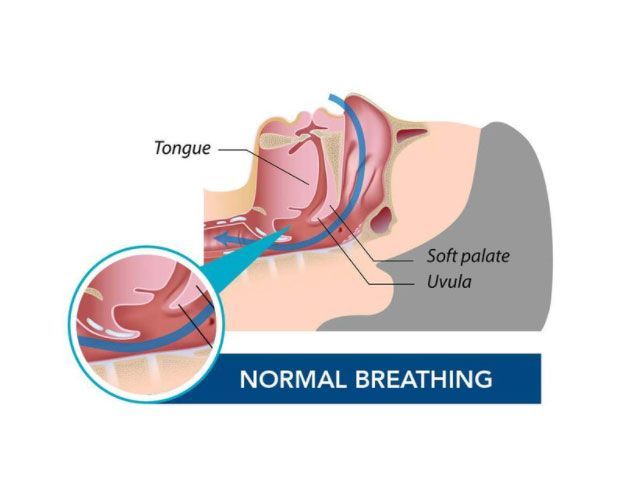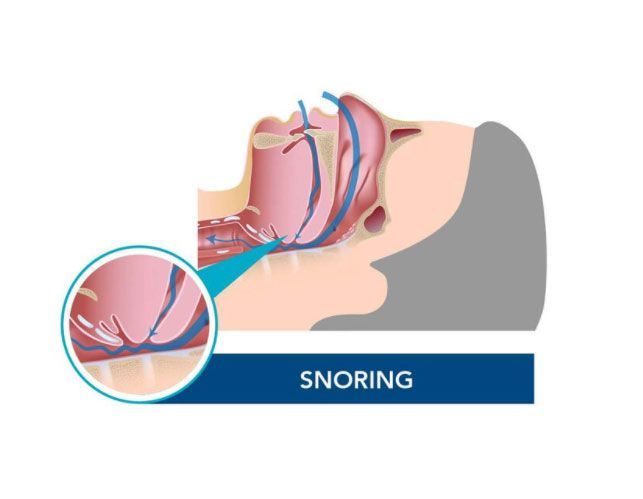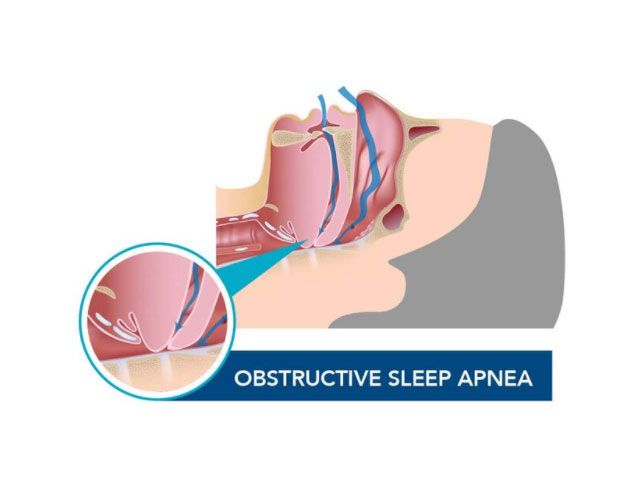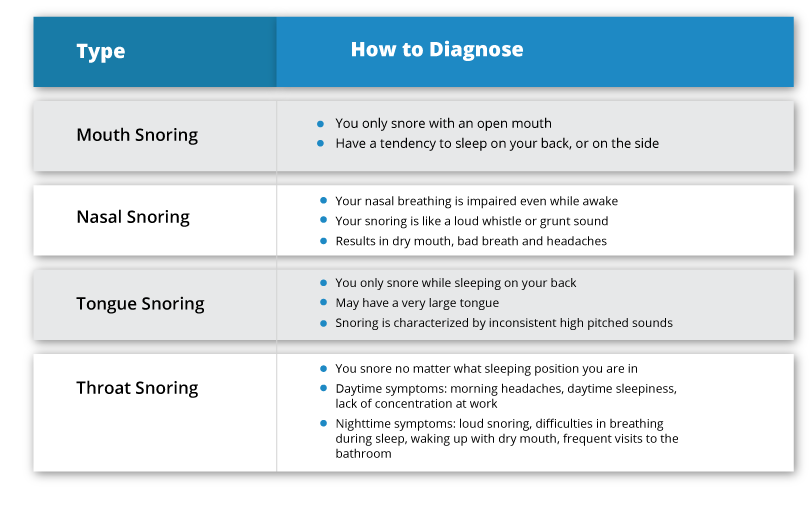Snoring and Sleep Apnea Treatments
Latrobe, PA
Maxillary Expansion Devices
Sleep Apnea Treatments
Oral Restriction Release Surgery
Hours:
Professional Snoring and Sleep Apnea Treatments
At Dentistry with a Touch of Art, we provide multiple treatments for snoring relief and sleep apnea, including our Solea Sleep Laser Therapy and Oral Appliance Therapy. We believe that restorative sleep can directly correlate to your overall health, and we are passionate about providing you the tools you need to gain a better quality of life. Contact Dentistry with a Touch of Art today to explore how we can help you achieve quieter, more restful sleep.
How Does Solea Sleep Work?
Solea Sleep is a revolutionary new procedure in the evolving field of dental sleep medicine. Solea Sleep is a simple, quick, and comfortable 5 minute laser treatment that provides rapid relief to people who snore. Solea Sleep is non-invasive and patient-friendly with no post-treatment discomfort or downtime. Treating snoring has never been easier! About 80% of people who snore are “palatal” or mouth snorers, which is snoring caused by the vibration of the soft palate tissue that has relaxed over time. A unique application of Solea’s specific wavelength allows the laser to gently and quickly tighten collagen fibers of the soft palate tissue in only one 5 minute session. The tightened soft palate tissue opens the airway and reduces vibrations that cause patients to snore and disrupt sleep.
Oral Appliance Therapy to Curb Sleep Apnea and Stop Snoring
While sleep apnea is more prevalent in men over 40, it can affect adults and children of any age. Weight, alcohol use, smoking and a history of heart conditions can increase the risk of developing sleep apnea. At Dentistry with a Touch of Art, we're committed to helping you achieve restful sleep and improved overall health through our customized sleep apnea treatments.
We offer a customized oral appliance that will reposition your jaw and open your airway to help you breathe easier. If you feel that you could benefit from sleep apnea treatments, call our office to schedule an appointment.
Symptoms of Snoring
Many people are not aware that they snore. It’s important to recognize these other, waking symptoms of a possible snoring condition:
- Sore throat upon awakening
- Headaches in the morning
- Excessive daytime sleepiness and fatigue
- Troubles with memory, learning, concentration
- Mood swings, short-temperedness, anxiousness, depression
- High blood pressure
Snoring is often associated with obstructive sleep apnea (OSA). If snoring is accompanied by any of the symptoms below, it may be an indication to see a doctor for further evaluation for OSA.
- Restless sleep
- Witnessed breathing pauses during sleep
- Gasping or choking at night
- Chest pain at night
- Disrupting your partner’s sleep
- Needing to get up often throughout the night to use the bathroom
If you're experiencing any of these symptoms, we encourage you to contact Dentistry with a Touch of Art for a comprehensive evaluation.
Snoring's Link to Sleep Apnea
In most cases snoring is a symptom of another sleep disorder: obstructive sleep apnea (OSA). Not everyone who snores has sleep apnea, but everyone diagnosed with sleep apnea snores, snoring is a key symptom.
Many people who suffer from sleep apnea remain undiagnosed. Sleep apnea is a serious sleep disorder that requires medical treatment. Snoring associated with sleep apnea may be loud, but loud snoring alone is not a definitive sign of sleep apnea. Sleep-apnea snoring may be intermittent, with pauses in noise followed by loud gasps, choking or snorting sounds. Often, it is sleeping partners who will observe these episodes. The link between snoring and sleep apnea is one important reason snoring should never be ignored. Without treatment, sleep apnea increases risks for other serious medical conditions, including cardiovascular disease and type 2 diabetes.
Oral Appliance Therapy to Curb Sleep Apnea and Stop Snoring
While sleep apnea is more prevalent in men over 40, it can affect adults and children of any age. Weight, alcohol use, smoking and a history of heart conditions can increase the risk of developing sleep apnea. At Dentistry with a Touch of Art, we're committed to helping you achieve restful sleep and improved overall health through our customized sleep apnea treatments.
We offer a customized oral appliance that will reposition your jaw and open your airway to help you breathe easier. If you feel that you could benefit from sleep apnea treatments,
call our office to schedule an appointment.
Snoring's Link to Sleep Apnea
In most cases snoring is a symptom of another sleep disorder: obstructive sleep apnea (OSA). Not everyone who snores has sleep apnea, but everyone diagnosed with sleep apnea snores, snoring is a key symptom.
Many people who suffer from sleep apnea remain undiagnosed. Sleep apnea is a serious sleep disorder that requires medical treatment. Snoring associated with sleep apnea may be loud, but loud snoring alone is not a definitive sign of sleep apnea. Sleep-apnea snoring may be intermittent, with pauses in noise followed by loud gasps, choking or snorting sounds. Often, it is sleeping partners who will observe these episodes. The link between snoring and sleep apnea is one important reason snoring should never be ignored. Without treatment, sleep apnea increases risks for other serious medical conditions, including cardiovascular disease and type 2 diabetes.



Reviews

Breathe easier with our airway dentistry services. We focus on improving your overall health through better nasal breathing.
Schedule Your
Airway Assessment Today
Types of Snoring and Why They Occur
Snoring at night is an indication that you are not sleeping well. Snoring is a result of your body being unable to move air freely through the throat and nose because of a partial closing of your upper airway. Depending on what causes this closing of the airway, there are four types of snoring, and in order to effectively combat them, it is crucial to understand why snoring occurs.
Mouth-Based Snoring
When a person breathes through the mouth instead of the nose while sleeping it results in mouth snoring, or “palatal fluttering.” This is the most common type of snoring, with 80% of snorers being mouth snorers. Blocked nasal passages, enlarged tonsils, or most commonly loose soft-palate tissue may be the causes behind mouth snoring. If you can’t breathe via your nose at night due to a blockage, it causes you to breathe through the mouth, resulting in a vibration of the soft-palate tissues, hence the snoring sound.
If loose soft-palate tissue is the cause then Solea Sleep is the most effective treatment that provides immediate relief in only 5 minutes by tightening the collagen fibers of the soft palate and opening the airway.
Nose-Based Snoring
Blocked nostrils as a result of a deviated septum or some physical obstruction in your nose may lead to blocking your airway, thus resulting in nasal snoring. Other causes include pet and dust allergies, nose stiffness, cold or if you are using certain types of medications. This kind of snoring can be treated in several ways depending on what causes it:
A deviated septum may require surgery to repair.
Air purifiers would help reduce snoring resulting dust allergies.
Quitting smoking, nasal dilator strips, or a nasal rinse is effective against snoring due to cold or stiffness.
Tongue-Based Snoring
This type of snoring occurs because the tongue gets too relaxed, particularly when we lie down on our back, thus blocking the airflow into the lungs. As a result, it becomes difficult to breathe, thereby causing snoring. Tongue-based snoring may occur in people who love to drink alcohol or use sleep medication. Excessive fat around the neck may also be a cause of tongue based snoring.
Snoring mouthpieces or mandibular advancement devices are especially designed to be used as a remedy for tongue snorers. It helps move your jaws forward, thus preventing the tongue from blocking the back of your throat, and ensure uninterrupted breathing. Anti-snoring pillows and backpacks are useful ways of preventing this kind of snoring. They keep you on your side, preventing you from turning on your back, thus avoiding difficulty in breathing.
Throat-Based Snoring
This kind of snoring is the loudest, and most dangerous of all. It is caused as a result of sleep apnea, a condition where the person stops breathing several times during the night in his sleep. And this condition occurs when the muscles and soft tissues in the throat area are too relaxed. They lead to a blockage in the walls of the throat, not allowing the air to pass through, thus resulting in tongue-based snoring or sleep apnea.
It occurs in every sleeping position, and can lead to diabetes, high blood pressure and stroke if left untreated. Sleep apnea needs medical attention right away, and the most common methods of treatment are CPAP therapy, UPAP therapy and UAS therapy.
How To Diagnose Your Snoring

Take the First Step Towards Peaceful Sleep
Your path to quieter nights and more restful sleep begins with Dentistry with a Touch of Art. We are ready to provide you with personalized and effective solutions for snoring relief and sleep apnea treatments. We combine our extensive experience, advanced technology, and compassionate care to address your unique needs. Don't let sleep issues compromise your health and relationships any longer. Reach out today to Dentistry with a Touch of Art to schedule your consultation and discover how we can help you achieve the peaceful sleep you deserve.
Can dental treatments help with snoring?
Yes, dental treatments like oral appliances can help reduce snoring by repositioning the jaw and tongue to keep airways open during sleep.
Are snoring treatments at Dentistry with a Touch of Art permanent?
While not always permanent, our snoring treatments can provide long-term relief when used consistently and combined with lifestyle changes.
How do I know if I'm a good candidate for snoring relief treatment?
A consultation with our dental team can determine if you're a suitable candidate based on the cause and severity of your snoring.
How does Solea Sleep work?
About 80% of people who snore are “palatal” or mouth snorers, which is snoring caused by the vibration of the soft palate tissue that has relaxed over time. A unique application of Solea’s specific wavelength allows the laser to gently and quickly tighten collagen fibers of the soft palate tissue in only one 5 minute session. The tightened soft palate tissue opens the airway and reduces vibrations that cause patients to snore and disrupt sleep.
What is sleep apnea?
Sleep apnea is a sleep disorder characterized by repeated pauses in breathing during sleep, often accompanied by loud snoring.
How can a dentist help with sleep apnea?
Dentists can provide oral appliances that help keep the airway open during sleep, reducing sleep apnea symptoms.
Does Solea Sleep treat sleep apnea?
No. Solea Sleep is not a treatment for Obstructive Sleep Apnea (OSA), a serious health condition that involves partial or complete obstruction of the airway and reduced blood oxygenation levels. However, snoring is a major symptoms in undiagnosed or diagnosed sleep apnea patients, and Solea Sleep treatment can provide significant relief from snoring and improvements in their quality of sleep.













